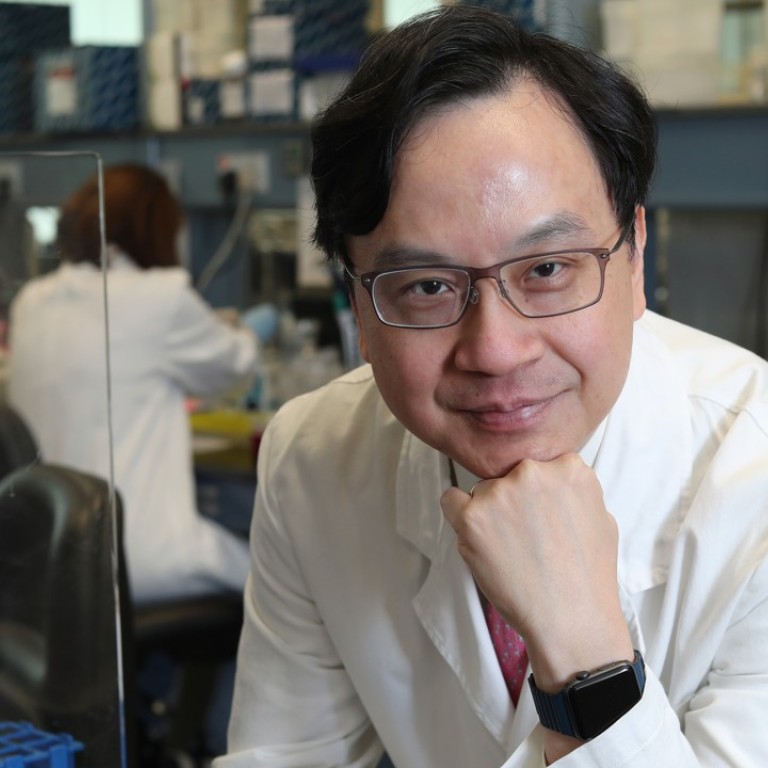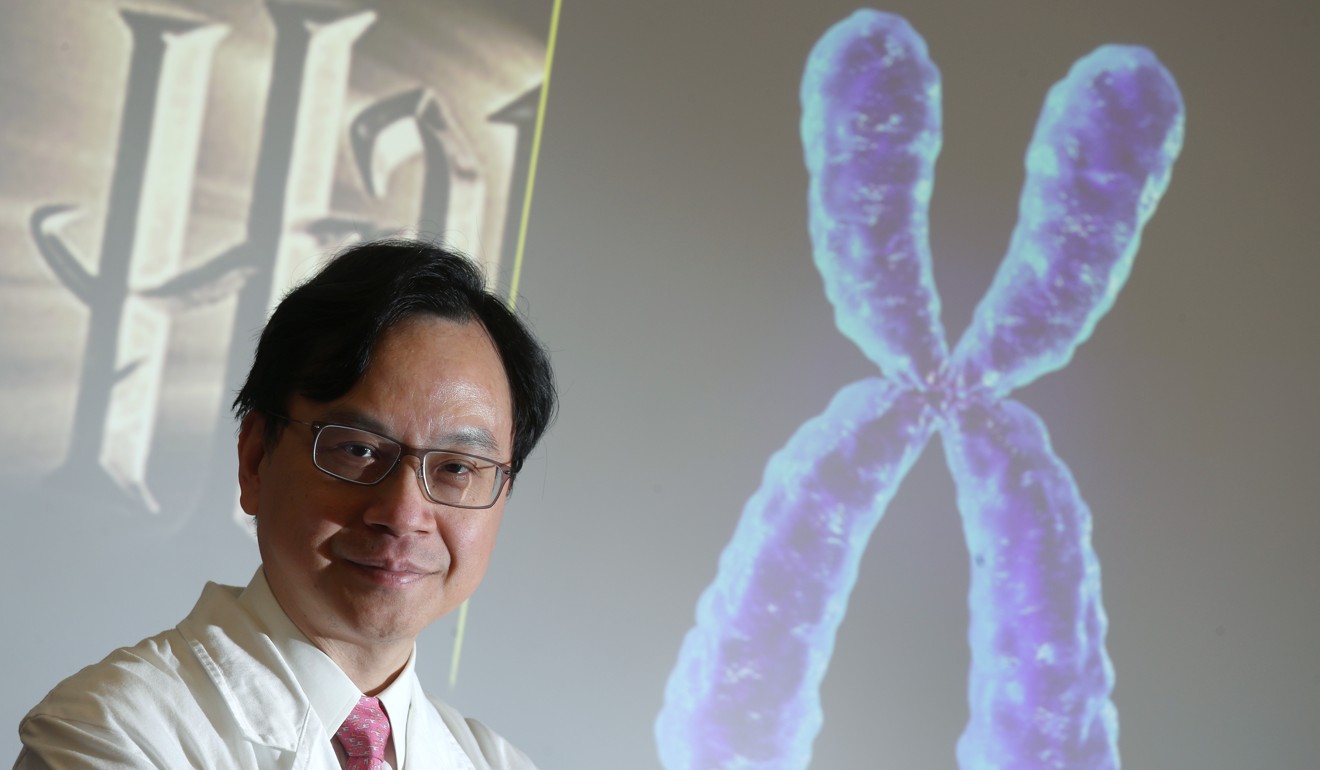
Hong Kong’s public hospitals to offer non-invasive Down’s syndrome test for free to women with high-risk pregnancies
Test, which costs HK$5,000 in private clinics, currently not available in public hospitals
From next year, women with high-risk pregnancies will be able to take a free non-invasive test for Down’s syndrome at Hong Kong’s public hospitals, instead of having to pay HK$5,000 for it in the private sector.
World-renowned molecular scientist Dr Dennis Lo Yuk-ming, whose findings two decades ago led to the screenings being done globally today, said women whose initial ultrasound scans and blood tests suggest their unborn child is at risk of congenital abnormalities would get the free test.
He confirmed he was training a team from Queen Mary Hospital to do the test, which requires a blood sample and also screens for other chromosomal disorders.
“We are working to transfer this technology to the Hospital Authority,” the Li Ka-shing professor of medicine at Chinese University (CUHK) said.
The new children’s hospital in Kai Tak could administer the test when it opens at the end of this year, the 54-year-old added. The Hospital Authority on Friday confirmed it planned for the test, which can be done when a woman is five weeks pregnant, to be launched at the hospital early next year.
In 1997, Lo first discovered that the fetus releases its DNA into the mother’s blood plasma. CUHK kept the patent for his finding but licensed the technology to two companies, while Xcelom, a start-up at Science Park that Lo founded, developed its own test.
There are now a variety of brands of the test on the market but Lo, who left Xcelom last year, said half of the women in the city who opted for the screening used the company’s SafeT21 test.

Hong Kong’s 43 public hospitals and institutions currently offer only traditional tests for Down’s syndrome, where a needle is inserted into the woman’s uterus to draw out either amniotic fluid or tissue from the placenta. The amniotic fluid test is done from about 15 weeks into pregnancy and carries an up to 1 in 200 risk of miscarriage.
The Hospital Authority said it provided 35,000 women with prenatal care each year and about 6 per cent take a Down’s syndrome test.
Non-Invasive Prenatal Testing is 99 per cent accurate when screening for Down’s syndrome
A Royal Society fellow and chairman of CUHK’s department of chemical pathology, Lo estimated that 5 per cent of the 50,000 pregnancies in Hong Kong each year – or about 2,500 – would be classed as high-risk, where babies could be born with congenital abnormalities.
Down’s syndrome, caused by an error in cell division leading to an extra chromosome, is the most common among such abnormalities, affecting one in every 700 children globally.
90 per cent surge in women aged 40 and above giving birth in Hong Kong
Currently, obstetricians counsel women on whether they should be screened or not, Lo said.
But if Hong Kong wants to be known as a centre for genomics, it should ramp up training for genetic counselling, he said, adding that a steering committee on developing genomic medicine in the city, set up last year, should debate ethical issues behind disease and prenatal screening.
Lo said a cure for Down’s syndrome might be close, as studies were under way to see if other chromosomal disorders could be treated in unborn babies. One example was a study on giving drugs to pregnant women whose unborn babies are producing too many male sex hormones.
Why Hong Kong’s birth rate is falling, and how sub-fertile couples can conceive
“If it’s a boy it’s probably OK but if it’s a female the baby might be born with some male-looking genital characteristics. So a girl might have to do a lot of surgeries to correct that,” he said.
Lo predicted that the next revolution would be in the field of molecular computing, where gigabytes of data would be stored in a DNA molecule.
He, his physicist wife Alice and their friend Cedric Yiu, a neuroscientist at Polytechnic University, published a paper about it some years back.
“Can you use your DNA as your ID, for example? Who has access to that data?” he said, acknowledging it would raise an ethical dilemma.
First mother-to-child HIV case in Hong Kong since 2012 as doctor warns of ‘loophole’ in city’s prenatal checks
Lo said because DNA has four bases – A, C, T and G – it could store information better than a computer.
“DNA is also incredibly stable. You can still extract it from mummies,” he said.

